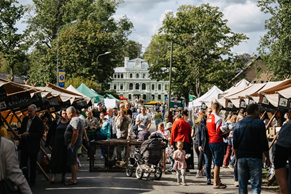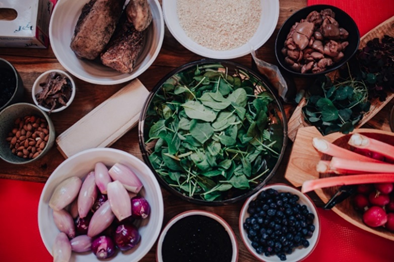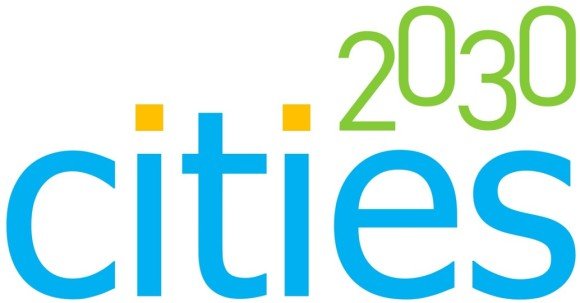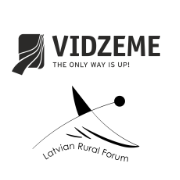CRFS Development
Vidzeme CRFS in Cities2030 framework
 CITIES2030 project thematic - to improve food system resilience and sustainability is on the agenda of VPR and the region's municipalities as a whole. The region has intention and strives to ensure accessible, safe and healthy food for its inhabitants today and in the future, and to have systemic solutions for farmers, producers and processors to have secured a place in the local food chains.
CITIES2030 project thematic - to improve food system resilience and sustainability is on the agenda of VPR and the region's municipalities as a whole. The region has intention and strives to ensure accessible, safe and healthy food for its inhabitants today and in the future, and to have systemic solutions for farmers, producers and processors to have secured a place in the local food chains.
Various homemade grocery and farmers' markets take place in the territory of the Vidzeme Planning Region. Everything offered at the markets is natural, healthy, and local
Latvian pilot will tackle the existing challenges in the REGIONAL FOOD SUPPLY SYSTEM for public sector institutions in the territory of the Vidzeme Planning Region. It will identify the most efficient ways to establish and maintain a sustainable and resilient regional food system and to strengthen ties among the food chain stakeholders (producers, processors, traders, logistic enterprises, catering services providers etc.) in order to increase availability and use of locally produced food, especially healthy food. Especially between producers, processors and consumers – to develop, implement and strengthen sustainable and resilient short food supply chains.
Vidzeme CRFS participation
 Vidzeme CRFS Labs will be led and managed in joint cooperation between VPR (P24) and LLF (P25). Reflecting on CRFS Prototyping Guidelines & Toolkit (hereinafter - Prototyping Guidelines) definitions of CRFS Labs, we can identify that within Vidzeme pilot both - CRFS Policy lab and CRFS Living lab will be developed. Mapping and identifying the CRFS stakeholders and actors of the food system in the Vidzeme and Latvia, we see that they largely overlap in both labs (see Food Journey Stakeholders’ map). Currently it is difficult to pinpoint whether each type of Lab will be developed separately or there will be a joint CRFS Lab that will incorporate features and activities of both types of labs.
Vidzeme CRFS Labs will be led and managed in joint cooperation between VPR (P24) and LLF (P25). Reflecting on CRFS Prototyping Guidelines & Toolkit (hereinafter - Prototyping Guidelines) definitions of CRFS Labs, we can identify that within Vidzeme pilot both - CRFS Policy lab and CRFS Living lab will be developed. Mapping and identifying the CRFS stakeholders and actors of the food system in the Vidzeme and Latvia, we see that they largely overlap in both labs (see Food Journey Stakeholders’ map). Currently it is difficult to pinpoint whether each type of Lab will be developed separately or there will be a joint CRFS Lab that will incorporate features and activities of both types of labs.
The feasibility study of the food system in Vidzeme has allowed the identify a potential focus for Vidzeme CRFS Labs:
- Vidzeme CRFS Policy lab will focus primarily on the Public Procurement of food. Lab will address the Green Public Procurement issue in public catering services provided by municipal authorities. The aim is to explore the current situation and find solutions for integrating more local production in public catering services. The Lab of Vidzeme region will address municipalities and farmers/producers/ retailers to understand in what ways their collaboration could be strengthened and will promote these solutions and their application to other territories, integration of aspects into the laws and policies.
-
Vidzeme CRFS Living lab will focus on practical solutions for strengthening the collaboration between municipal authorities and local farmers/producers, as well strengthening local farmers/producers’ position in the public catering system. Additionally, CRFS Living labs will focus also on solutions for short food chains (more precise focus will be defined in late 2021 or early 2022, when the local CRFS LL innovation facilitator will be recruited).
Vidzeme CRFS labs development
Of the all four phases of CRFS labs, described in the Prototyping Guidelines, Vidzeme pilot is currently in the 1st phase - to understand and to explore CRFS in Vidzeme region.
The following actions have taken place:
- Feasibility study of the food system based on VPR, LLF and partner organisations/ members’ experience in food system in Vidzeme;
- identified issues to be addressed within the Vidzeme CRFS labs, particularly GPP and short food chains
- conducted a survey of municipalities/ municipal authorities on their experience in implementing public food procurement for local municipal institutions;
- surveys, interviews and meetings with entrepreneurs on their experience in participating in public food procurement currently are carrying out;
- identifying stakeholders of the food system see Food Journey stakeholders map (ongoing process);
- identifying potential synergies with other Cities2030 partners (looking for pilots addressing similar issues or having good practices (there have been meetings with Croatian partners on the experience of food procurement/school schemes);
- collecting information on the GPP criteria, legal framework, monitoring mechanisms, good practices of green public procurement in EU countries.
By mapping Food Journey's stakeholder map, we have identified a wide network of stakeholders and food systems actors in Vidzeme and Latvia.
Food journey stakeholder's map:
| Production | Processing | Distribution | Markets | Consumption | Waste | Ecosystem service | |
| Policy |
Ministry of Agriculture, Ministry of Economy, Rural Support Service, Latvian Agricultural Organization Cooperation Council, Latvian Organic Farming Association, Latvian Home Producers Association, AREI, Baltic Study centre |
Ministry of Agriculture, Ministry of Economy, Latvian Federation of Food Companies |
Ministry of Economy, Ministry of Transports; Latvian Logistics Association |
Ministry of Economy, Latvian Traders Association |
Ministry of Economy, Consumer Rights Protection Centre, Food and Veterinary Service; Municipalities of Vidzeme, Baltic Study Centre |
Ministry of Environmental Protection and Regional Development, State Environmental Service Local governments of Vidzeme, Waste Management Association of Latvia (lasa.lv), Latvian Association of Waste Management Companies (lasua.lv), Latvian Packaging Association, |
Vidzeme Planning region,
Catering industry (the largest enterprises: SIA “KANTĪNE B”; LATVIAN FOOD BIOECONOMY CLUSTER
Institute of Food safety, Animal Health and |
| Living | PL + food producers: home producers, farmers |
PL + producers, transformation SME, agro‐food enterprises |
PL + transport SME, transporters, local logistic enterprises, |
PL +, Local farmers markets (e.g., Straupe Farmers’ Market/Slow food Straupe, Lauku labumi Alūksnē; Hanza market); retail chains (Rimi, Maxima, Top, Lats etc.), wholesalers, retailers, direct sales and buying movements / initiatives (tiesapirksana.lv, novadagarsa.lv, percvietejo.lv, https://majrazotajuveikals.lv/) |
PL + consumers, Horeca enterprises, Vidzeme inhabitants, Municipality authorities (schools, hospitals, social care centers, etc.) |
PL + Regional Landfill (Daibe), Municipal public services, Waste management companies (ZAAO LtD, Pilsētvides serviss LtD, Latvijas zaļais punkts), municipal institutions (schools, social care centres),packaging producers Experts in waste issues Inhabitants |
For the next phase - To set up CRFS Lab, preparatory work is being carried out:
- The necessary human resources for the development of CRFS Living Lab are being identified - an innovation facilitator will be recruited, as well as negotiations are underway with the research institute on the involvement of a food researcher in the activities of CRFS LL.
- The potential territory (municipality) in Vidzeme where the CRFS Lab activities will be implemented in the initial (experimental) phase is being identified.
The next phases - experimental and evaluation will be implemented according to the CRFS Lab development cycle and according to the project timeline.
Needs and requirements analysis
Surveys, discussions and interviews with local producers, farmers and local governments on food procurement various needs, challenges and possible solutions were identified
|
Needs & challenges |
Action & solution |
|
Local farmers/ producers |
|
|
Inability to track procurements and understand different requirements (lack of time and human resources)
|
To provide consultations and informative seminars to local farmers and producers regarding the food procurement. To create a platform that ensures operative and convenient information exchange between local producers and public procurement organisers - local governments and their institutions (for local governments - to identify potential suppliers of locally produced food products (the range, quality, volumes and supply intervals), for local producers – to learn about tenders of FPP). |
|
Due complicated procurement system local producers reluctantly participate in FPP |
To build dialog between actors of FPP (local farmers/ producers, local governments, ministries, parents etc.) to understand their positions and justification of requirements and needs of each. To develop recommendations in policy documents and regulatory enactments in order to streamline the implementation of procurement procedures. To implement necessary amendments to improve the regulatory enactments for the implementation of food procurement. |
|
Difficulties for small producers to meet "green procurement requirements” |
To carry out an analysis of which requirements pose the greatest difficulties. Develop solutions and create conditions that encourage local food producers to meet “green requirements”. |
|
Inability to provide the full range of food and fulfil the requirements of procurement procedures |
Very timely to inform suppliers (local producers) on procurement requirements that will have to be observed / fulfilled when preparing a tender and delivering food products. To stimulate local producers and farmers to form cooperatives in order to meet procurement requirements. |
|
The expected selling price of the products is too low that does not cover the production costs, at the same time - the requirements specified in the procurement regulations significantly increase the price of supply, thus reducing competitiveness |
In cooperation with local governments and ministries to discuss the need to review the existing fixed catering costs, adjusting them to real market costs. |
|
Local governments, municipal authorities |
|
|
Poor capacity of human resources to implement procurement procedures and monitor implementation (product quality, traceability, etc.) |
To increase the knowledge of municipal employees about procurement procedures; Involve a food technologist or nutritionist in the preparation of procurement technical specifications. |
|
Regulatory restrictions (eg a fixed price for a meal that does not correspond to the market price) |
To organise a dialogue with parents and other involved stakeholders on the possibility of providing co-payment for catering. |
|
Lack of food/products storage and logistics solutions that would allow to purchase larger quantities of food and ensure their long-term storage |
In collaboration with local governments and local producers to develop solutions for logistics and storage. To inform, support and encourage entrepreneurs and local governments to develop cooperation projects and to apply to the European Agricultural Fund for Rural Development LEADER program that finance initiatives to set up food logistics, warehousing and short food chains in the new period (2021-2027). |


